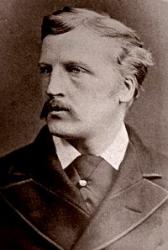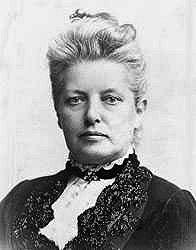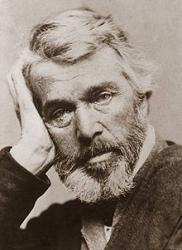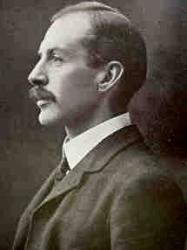Planning worship?
Check out our sister site, ZeteoSearch.org,
for 20+ additional resources related to your search.
- |
User Links
Person Results
‹ Return to hymnal






Export as CSV
John Douglas Sutherland Campbell, Duke of Argyll

1845 - 1914 Person Name: John Campbell Hymnal Number: d227 Author of "Unto the hills around do I lift up my longing eyes" in Divine Service Book for the Armed Forces John George Henry Douglas Sutherland Campbell LLD [Duke of Argyll] United Kingdom 1845-1914. Born in London to George Campbell, Marques of Lorne, and styled Earl of Campbell from birth, he assumed his father's title at the age of 21 months, when his father became 8th Duke of Argyll. He bore that title until age 54. Educated at Edinburgh, Eton College, St. Andrews and at Trinity College, Cambridge, he also went to the National Art Training School. He traveled widely for 10 years throughout North and Central America, writing literature and poetry. In the UK, from 1868, he represented the constituency of Argyllshire as a Liberal member of Parliament in the House of Commons. He made little impression there. He was appointed Lt. Col. Commandant of the 1st Argyll & Bute Artillary Volunteers. He married Queen Victoria's 4th daughter, Princess Louise. They shared interest for art, but the marriage was childless and unhappy, and they spent much time apart.
At 33, he was appointed Governor General of Canada. He and Louise made many contributions to Canadian society, especially in the arts and sciences. They encouraged establishment of the Royal Society of Canada, the Royal Canadian Academy of Arts, and the National Gallery of Canada, even selecting some of its paintings. Campbell was also involved in completion of the Canadain Pacific Railway and a hospital in British Columbia. He and his wife held lavish parties while in Canada. In 1881, Louise returned to England, and the Lord also in 1883, when he published his memoirs of Canada and Scotland. He was Governor and Constable of Windsor Castle from 1892 to 1914. He died of pneumonia in 1914. He received 4 Knightings and 4 special honors for his accomplishments. Towns, buildings, streets and parks were named for him.
John Perry
John Douglas Sutherland Campbell, Duke of Argyll
Rebecca J. Weston
Hymnal Number: d42 Author of "Father, we thank thee [you] for the night" in Divine Service Book for the Armed Forces
Rebecca J. Weston
Mary Mapes Dodge

1830 - 1905 Hymnal Number: d24 Author of "Father, we thank thee" in Divine Service Book for the Armed Forces Mary Mapes Dodge is the often referred to as the "leader in juvenile literature" (Clarke, 1059), for she helped create and perpetuate the most widely circulated and read children's magazine during a time when American printing technology greatly improved and enabled the mass production of magazines and books. Dodge was born on January 26, 1831 in New York City. She grew up in a prominent family with two sisters. Her "own reminiscences were of 'a devoted father and mother and a happy childhood, a remarkably happy childhood, watched over with loving care'" (Gannon 3). Beginning in her early childhood, Dodge and her sisters were educated by a tutor in their home. Their father introduced them to a large variety of literature from the Bible to Shakespeare because at that time Dodge's father believed that children's literature was "a dreary wasteland" (Gannon 4). Dodge's early exposure to literature enabled her to develop a gift and appreciation for art, music, and writing. In her teenage years, Dodge could skillfully write and she assisted her father with his writings for pamphlets.
In 1851 Mary celebrated her marriage to William Dodge, and within the next 4 years, she gave birth to two sons, James and Harrington. The Dodge family confronted several hardships throughout their life together. In 1857, William faced serious financial difficulties concerning debts and the destruction of the company he worked for. During that same year, at the age of six, their son James was diagnosed with a fatal sinus disease. The effect of these disastrous events caused William to leave his family in 1858. He left for a walk from which he never returned. A month after his disappearance his body was found dead from an apparent drowning.
After the death of her husband, Mary was left in a bad financial position and with two sons to raise on her own. At this time, Mary "resolved 'to take up her life again in the old spirit of rejoicing; to rear and educate her boys as their father would have done; to do a man's work with the persistent application and faithfulness of a man, to gain a man's pay, yet to leave herself freedom and freshness to enter into all her children's interests and pursuits as their comrade and friend" (Gannon 7). Mary would not allow the unfortunate events of her husband's death and financial difficulty stand in her way from educating her sons and providing them with the life they deserved. In addition to educating her sons, she began writing and editing in 1859. Mary worked with her father to publish two magazines, the Working Farmer and the United States Journal. The editorial work she used for these magazines helped to shape her writing skills, which she later applied to edit the most successful children's magazine of her time.
Some of Mary's early writings before the publication of St. Nicholas include The Irvington Stories (1864) and Hans Brinker (1865). Hans Brinker is by far Dodge's most well known story, for it was published in several languages all over the world and this classic was considered "the best and most faithful juvenile story" (Clarke 1063). Four years after the publication and success of Hans Brinker, Dodge began working for a newspaper known as Hearth and Home." Dodge worked on the juvenile and household departments under the editorship of Harriet Beecher Stowe. Roswell Smith, one of the founders of the children's magazine Scribner's Monthly, observed Dodge's work at Hearth and Home. Smith considered Dodge for the editor of his newly created children's magazine, St. Nicholas, named for the patron saint for children. Dodge faced a difficult decision because she wanted to pursue novel writing and other challenging fields, but her heart remained with children. "Many gifted men and women were writing novels; no one was doing all that could be done--ought to be done--for the boys and girls" (Clarke 1063), and thus Dodge accepted the position of editor for St. Nicholas.
Dodge's goal for her children's magazine was to create literature that inspired and interested children. In 1873 she anonymously wrote for Scribner's Monthly,"a successful children's magazine "must not be a milk-and-water variety of the periodical for adults. In fact, it needs to be stronger, truer, bolder, more uncompromising than the other; its cheer must be the cheer of the bird-song; it must mean freshness and heartiness, life and joy" (Clarke 1063). Mary clearly illustrates here her intention for the path St. Nicholas. Mary hoped to portray the traditional values of society, to educate children, to provide enjoyable entertainment, and to prepare them for "life as it is" (Kelly 380).
Dodge took careful consideration for the layout of her magazine so she could fulfill her goals for a successful children's magazine. Two important obstacles confronted Dodge when she considered the type of articles to include in her magazine. The first problem she faced was how to entice her readers and maintain their attention. Dodge's technique to overcome this problem was the use of "regular departments" and "reader involvement" (Gordon, 380). The most famous regular department found in her magazine was 'Jack-in-the-Pulpit'. 'Jack-in-the-Pulpit' was "the inimitably wise and witty little preacher whose tiny discourses of the keenest sense and most inspiriting nonsense, . . . were a feast for the mind and souls of young folks every month" (Clarke 1065). Jack was a maternal type character that reflected Dodge's own personality. Dodge hoped to instill value and morals into the children without directly preaching to them. Jack provided an advantageous resource for accomplishing this goal because he was witty, humorous, and sincere. The children reading the story could easily identify with Jack's "preachings" and accept them because they were not directly aimed at the reader. In addition, Dodge added two more characters, Deacon Green and Little Schoolma'am, to provide authority figures and the introduction of new and interesting knowledge for the readers.
The second technique Dodge employed for her periodical was reader involvement. Dodge included two features, "The Puzzle Box" and "The Letter-Box." "The Puzzle Box" provided entertainment for the readers through riddles or games. The answers to these games, however, were not included in the issue of the magazine. Readers had to send their answers to the publisher for judging, and only then could they find out the true answers. "The Letter-Box" included letters written to Dodge from the readers. Publication for readers was not only included in this section, but Dodge also encouraged children to contribute their own literature to the magazine.
St. Nicholas became one the most successful magazines for children during the second half of the nineteenth century. Circulation increased to almost 70,000 children all over the U.S. The success of this periodical can be attributed to Dodge's dedication and the many contributors. Dodge's persistence in finding extraordinary talents such as Louisa May Alcott, Rudyard Kipling, President Theodore Roosevelt, F. Scott Fitzgerald, and Sarah Orne Jewett provided a variety of intellectual and artistic material for children every month. St. Nicholas' began in 1873 and continued for the next 30 years with a few publications after Dodge's death in 1905. Dodges dedication to children is clearly evident in the hard work she devoted to this magazine. Dodge is an inspirational women who set goals people thought impossible, but ones she was able to achieve. In a memoir written after Dodge's death in a St. Nicholas publication, Dodge is described as a woman who put her heart into her work and achieved the goals she put forth. "What she attempted, she performed. There was no emergency, great or small, to which she was not equal; there was no Hill of Difficulty" (Clarke 1064). She was a woman to be truly admired, for her thirty years of work dedicated to children has influenced the world of periodicals ever since.
--www.facstaff.bucknell.edu/gcarr/ (excerpts)
Mary Mapes Dodge
Henry F. Chorley

1808 - 1872 Hymnal Number: d62 Author of "God, the Omnipotent, King, who ordainest" in Divine Service Book for the Armed Forces Chorley, Henry Fothergill, was born at Blackleyhurst, Lancashire, Dec. 15, 1808, and educated at the Royal Institution, Liverpool. In 1834 he was engaged as a member of the staff of the London Athenaeum. This connection he retained for 35 years. He died Feb. 15, 1872. He published some novels and a large number of songs.
--John Julian, Dictionary of Hymnology, Appendix, Part II (1907)
============
Born: December 15, 1808, Blackley Hurst, near Billinge, Lancashire, England.
Pseudonym: Paul Dell.
Died: February 16, 1872, London, England.
Buried: Brompton Cemetery, London, England.
Son of an iron worker and lock maker, Chorley moved with his family to Liverpool after his father’s death in 1816. He was educated by private tutors in Liverpool and at the school of the Royal Institution. His youth was shaped partly by time spent in the household of the wealthy and intellectual Mrs. Benson Rathbone of Green Bank, and he became a close friend of her son Benson, who died in an accident in 1834.
Chorley began writing for the London Athenæum in 1830, and was the paper’s music critic and literary reviewer until 1868. He also became music critic for the London Times and wrote, for these and other journals, reviews and musical gossip columns, discussing composers and performers in Britain and on the European continent. He was quite conservative, and was a persistent opponent of innovation, but was a lively chronicler of London life. In the Athenæum and elsewhere, Chorley often criticized the music of Schumann and Wagner for what he called "decadence." In 1850 and 1851, Chorley edited the Ladies’ Companion, which covered fashion and domestic women’s issues.
Chorley was also a journalist, novelist, playwright, and poet, and opera librettist. One of his best known pieces was his obituary of Turgenev, mistakenly written while the Russian was still very much alive. Turgenev was not offended by the error nearly as much as he was by the critical opinions of his work Chorley gave in the obituary.
Chorley was considered eccentric and abrasive, but was respected for his integrity and kindness. He enthusiastically gave and attended dinner parties, and cultivated friendships with Elizabeth Barrett, Felix Mendelssohn, Charles Dickens, Arthur Sullivan and Charles Santley. After the death of his brother, John Rutter Chorley (1806–1867), Henry inherited enough money to retire from the Athenæum, though he continued to contribute articles for that paper and for The Orchestra.
In spite of Chorley’s efforts to promote the music of Charles Gounod in England, the composer disliked Chorley intensely. When Gounod lived in England in the early 1870’s, he wrote a satirical piano piece intended to be a parody of Chorley’s personality. It greatly amused Gounod’s English patron, Georgina Weldon, who described Chorley as having a "thin, sour, high-pitched sopranish voice" and moving like a "stuffed red-haired monkey." Gounod intended to publish the piece with a dedication to Chorley, but died before this was possible. Weldon then invented a new program for the piece, which was re-titled Funeral March of a Marionette. It became popular as a concert piece, and in the 1950s, its opening phrases became well known as the theme music for the television program Alfred Hitchcock Presents.
Chorley’s works include:
Music and Manners in France and Germany, 1841
Pomfret, 1845
Roccabella, 1859
The Prodigy, 1866
--www.hymntime.com/tch/
Henry F. Chorley
J. Freeman Young
1820 - 1885 Person Name: J. F. Young Hymnal Number: d189 Author of "Silent night, holy night, all is calm, all is bright" in Divine Service Book for the Armed Forces John Freeman Young (1820-1885)
Born: October 30, 1820, Pittston, Maine.
Died: November 15, 1885, New York City.
Buried: Old City Cemetery, Jacksonville, Florida.
Young attended Wesleyan University, Middletown, Connecticut; Wesleyan Seminary, Readfield, Maine; and the Virginia Theological Seminary, Alexandria, Virginia. Ordained a Protestant Episcopal minister, he served in Texas, Mississippi, Louisiana, and New York, and became the second bishop of Florida in 1867. His works include:
Carols for Christmas Tide (New York: Daniel Dana, Jr., 1859)
Hymns and Music for the Young, 1860-61
Great Hymns of the Church (editor; published posthumously in 1887 by John H. Hopkins)
--www.hymntime.com/tch
J. Freeman Young
Samuel Johnson

1822 - 1882 Hymnal Number: d28 Author of "City of God, how broad and far [fair]" in Divine Service Book for the Armed Forces Johnson, Samuel, M.A, was born at Salem, Massachusetts, Oct. 10, 1822, and educated at Harvard, where he graduated in Arts in 1842, and in Theology in 1846. In 1853 he formed a Free Church in Lynn, Massachusetts, and remained its pastor to 1870. Although never directly connected with any religious denomination, he was mainly associated in the public mind with the Unitarians. He was joint editor with S. Longfellow (q. v.) of A Book of Hymns for Public and Private Devotion, Boston, 1846; the Supplement to the same, 1848; and Hymns of the Spirit, 1864. His contributions to these collections were less numerous than those by S. Longfellow, but not less meritorious. He died at North Andover, Massachusetts, Feb. 19, 1882. His hymns were thus contributed:—
i. To A Book of Hymns, 1846.
1. Father [Saviour] in Thy mysterious presence kneeling. Divine Worship.
2. Go, preach the gospel in my name. Ordination.
3. Lord, once our faith in man no fear could move. In Time of War.
4. O God, Thy children gathered here. Ordination.
5. Onward, Christians, [onward] through the region. Conflict. In the Hymns of the Spirit, 1864, it was altered to "Onward, onward through the region."
6. Thy servants' sandals, Lord, are wet. Ordination.
7. When from Jordan's gleaming wave. Holy Baptism.
ii. To the Supplement, 1848.
8. God of the earnest heart. Trust.
iii. To the Hymns of the Spirit, 1864.
9. City of God, how broad, how far. The Church the City of God.
10. I bless Thee, Lord, for sorrows sent. Affliction— Perfect through suffering.
11. Life of Ages, richly poured. Inspiration.
12. Strong-souled Reformer, Whose far-seeing faith. Power of Jesus.
13. The Will Divine that woke a waiting time. St. Paul.
14. Thou Whose glad summer yields. Prayer for the Church.
15. To light that shines in stars and souls. Dedication of a Place of Worship.
Of these hymns No. 8 was "Written for the Graduating Exercises of the Class of 1846; in Cambridge Divinity Schools ; and No. 10 “Written at the request of Dorothea L. Dix for a collection made by her for the use of an asylum." It is undated. A few only of these hymns are in use in Great Britain. [Rev. F. M. Bird, M.A.]
-- John Julian, Dictionary of Hymnology (1907)
Samuel Johnson
William Medlen Hutchings
1827 - 1876 Person Name: W. M. Hutchings Hymnal Number: d239 Author of "When mothers of Salem their children brought to Jesus" in Divine Service Book for the Armed Forces Hutchings, William Medlen, son of William Hutchings, was born at Devonport, Aug. 28, 1827, and died May 21,1876. Mr. Hutchings was engaged for some time as a printer and publisher in London. His well-known hymn, "When mothers of Salem their children brought to Jesus" (Children brought to Christ), was written for the anniversary service of St. Paul's Chapel Sunday School, Wigan, in 1850, and was published in a revised form in the Juvenile Missionary Magazine of June 1850. A full account of the original and the revised texts is given in a note in W. F. Stevenson's Hymns for Church and Home, 1873. Another hymn by Mr. Hutchings, "We have heard the wondrous story" (The Life of Jesus), appeared in the Sunday School Union Voice of Praise, 1886.
--John Julian, Dictionary of Hymnology, Appendix, Part II (1907)
William Medlen Hutchings
James Merrick
1720 - 1769 Hymnal Number: d9 Author of "As pants the hart for cooling flood [springs] [streams]" in Divine Service Book for the Armed Forces Merrick, James , M.A., was born in 1720, and educated at Oxford, where he became a Fellow of Trinity College. He entered Holy Orders, but his health would not admit of parish work. He died at Reading, 1769. His publications include:—
(1) Messiah, a Divine Essay. Humbly dedicated to the Reverend the Vice-Chancellor of the University of Oxford and the Visitors of the Free School in Reading. By James Merrick, Ætat. 14, Senior Scholar of the School at their last Terminal Visitation, the 7th of October, 1734. Reading. (2) The Destruction of Troy. Translated from the Greek of Tryphiodorus into English Verse, with Notes, &c. 1742. (3) Poems on Sacred Subjects. Oxford . 1763. (4) The Psalms of David Translated or Paraphrased in English Verse. By James Merrick, M.A., late Fellow of Trinity College, Oxford. Reading. J. Carnan and Co. 1765. 2nd ed. 1766. A few only of these paraphrases were divided into stanzas. In 1797 the Rev. W. D. Tattersall pulished the work "Divided into stanzas for Parochial Use, and paraphrased in such language as will be intelligible to every capacity . . . with a suitable Collect to each Psalm from the Works of Archbishop Parker."
Merrick's paraphrases, although weak and verbose, were in extensive use in the early part of the present century, both in the Church of England and with Nonconformists. They have, however, fallen very much into disuse. Those in modern hymn-books, mainly in the form of centos, include:—
1. Blest Instructor, from Thy ways. Ps. xix.
2. Descend, O Lord! from heaven descend. Ps. cxliv. (In time of National Peril.)
3. Far as creation's bounds extend. Ps. cxlv.
4. God of my strength, the wise, the just. Ps. xxxi.
5. He who with generous pity glows. Ps. xli.
6. How pleasant, Lord.Thy dwellings are. Ps. lxxxiv.
7. Lift up your voice and thankful sing. Ps. cxxxvi.
8. Lo, my Shepherd's hand divine. Ps. xxiii.
9. Lord, my Strength, to Thee I pray. Ps. xxviii.
10. My heart its noblest theme has found. Ps.xlv.
11. O let me, [gracious] heavenly Lord extend. Ps. xxxix.
12. O turn, great Ruler of the skies. Ps. li.
13. Praise, O praise the Name divine. Ps. cl.
14. Sing, ye sons of [men] might, O sing. Ps. xxix.
15. Teach me, O teach me, Lord, Thy way. Ps. cxix.
16. The festal morn, my [O] God, is come. Ps. cxxii, (Sunday Morning.)
17. The morn and eve Thy praise resound. Ps. lxv. (Harvest.)
18. To Thy pastures, fair and large. Ps. xxiii.
From his Poems on Sacred Subjects, 1763, the following centos have also come into common use: --
19. Author of good, to Thee we turn. Resignation.
20. Eternal God, we look to Thee. Resignation.
21. 'Tis enough, the hour is come. Nunc Dimittis.
John Julian, Dictionary of Hymnology (1907)
James Merrick
Thomas Carlyle

1795 - 1881 Hymnal Number: d1 Author of "A safe stronghold our God is still, A trusty shield" in Divine Service Book for the Armed Forces Thomas Carlyle (4 December 1795 – 5 February 1881) was a Scottish satirical writer, essayist, historian and teacher during the Victorian era. He called economics "the dismal science", wrote articles for the Edinburgh Encyclopedia, and became a controversial social commentator.
Coming from a strict Calvinist family, Carlyle was expected to become a preacher by his parents, but while at the University of Edinburgh he lost his Christian faith. Calvinist values, however, remained with him throughout his life. His combination of a religious temperament with loss of faith in traditional Christianity, made Carlyle's work appealing to many Victorians who were grappling with scientific and political changes that threatened the traditional social order. He brought a trenchant style to his social and political criticism and a complex literary style to works such as The French Revolution: A History (1837). Dickens used Carlyle's work as a primary source for the events of the French Revolution in his novel A Tale of Two Cities.
--en.wikipedia.org
========================
Carlyle, Thomas, the Essayist and Historian, is known to hymnody solely through his translation of Luther's "Ein feste Burg," q.v. He was born near Ecclefechan, Dumfriesshire, Dec. 4, 1795, and died at Chelsea, Feb. 5, 1881.
--John Julian, Dictionary of Hymnology (1907)
Thomas Carlyle
John S. Arkwright

1872 - 1954 Hymnal Number: d164 Author of "O valiant hearts, who to your glory came Through dust of conflict and thro' battle flame" in Divine Service Book for the Armed Forces
John S. Arkwright


 My Starred Hymns
My Starred Hymns


